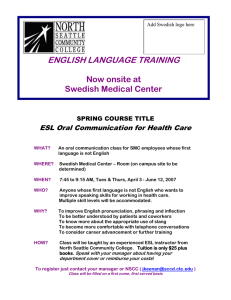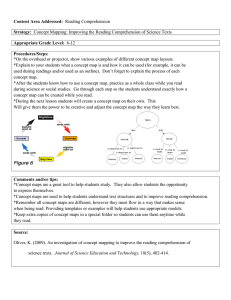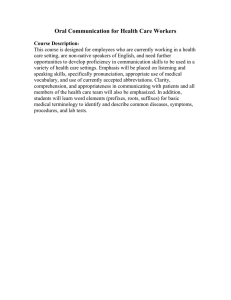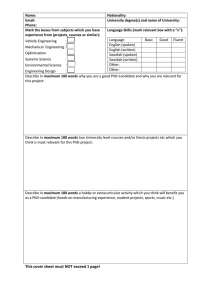On completion of the course SFU level 1 the student shall: • be able
advertisement
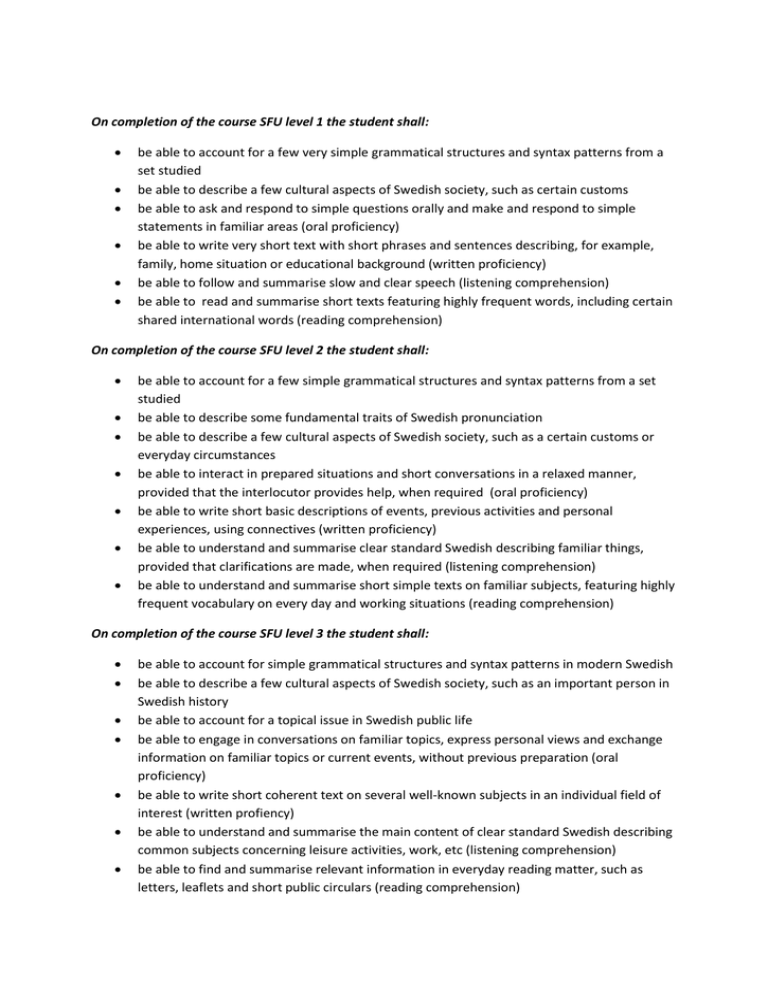
On completion of the course SFU level 1 the student shall: be able to account for a few very simple grammatical structures and syntax patterns from a set studied be able to describe a few cultural aspects of Swedish society, such as certain customs be able to ask and respond to simple questions orally and make and respond to simple statements in familiar areas (oral proficiency) be able to write very short text with short phrases and sentences describing, for example, family, home situation or educational background (written proficiency) be able to follow and summarise slow and clear speech (listening comprehension) be able to read and summarise short texts featuring highly frequent words, including certain shared international words (reading comprehension) On completion of the course SFU level 2 the student shall: be able to account for a few simple grammatical structures and syntax patterns from a set studied be able to describe some fundamental traits of Swedish pronunciation be able to describe a few cultural aspects of Swedish society, such as a certain customs or everyday circumstances be able to interact in prepared situations and short conversations in a relaxed manner, provided that the interlocutor provides help, when required (oral proficiency) be able to write short basic descriptions of events, previous activities and personal experiences, using connectives (written proficiency) be able to understand and summarise clear standard Swedish describing familiar things, provided that clarifications are made, when required (listening comprehension) be able to understand and summarise short simple texts on familiar subjects, featuring highly frequent vocabulary on every day and working situations (reading comprehension) On completion of the course SFU level 3 the student shall: be able to account for simple grammatical structures and syntax patterns in modern Swedish be able to describe a few cultural aspects of Swedish society, such as an important person in Swedish history be able to account for a topical issue in Swedish public life be able to engage in conversations on familiar topics, express personal views and exchange information on familiar topics or current events, without previous preparation (oral proficiency) be able to write short coherent text on several well-known subjects in an individual field of interest (written profiency) be able to understand and summarise the main content of clear standard Swedish describing common subjects concerning leisure activities, work, etc (listening comprehension) be able to find and summarise relevant information in everyday reading matter, such as letters, leaflets and short public circulars (reading comprehension) On completion of the course SFU level 4 the student shall: be able to account for a few key aspects of the morphology and syntax of modern Swedish be able to account for topical issues in current Swedish public debate be able to describe a chosen Swedish literary text and its author be able to make a prepared simple presentation on a familiar subject (oral proficiency) be able to write clear and detailed texts on several different subjects (written proficiency) be able to understand and summarise both general content and specific details of uncomplicated factual information (listening comprehension) be able to summarise uncomplicated factual texts in a familiar field with satisfactory degree of comprehension (reading comprehension) On completion of the course SFU level 5, the student shall: account for some key aspects of the morphological and syntactical structure of modern Swedish account for a few current events in different societal contexts covered in Swedish mass media and with satisfactory understanding account for uncomplicated non-fiction texts on a familiar subject (reading comprehension) provide arguments for or against a certain position and explain the advantages and disadvantages of different views (oral proficiency) hold a talk on a familiar subject (oral proficiency) write clear, detailed and syntactically correct texts on several different subjects and compile and evaluate information and arguments from different sources (written proficiency) follow and report a long oral presentation (listening comprehension) read and summarise articles and features on topical issues (reading comprehension)

